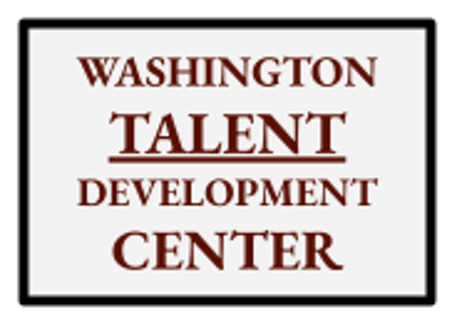
Five-Stage Accelerated Developmental Pathway:
5/8/20245 min read
STAGE 1. Confidence, Habit, and small Success (6th, 7th)
For many middle school students, especially those from underprivileged backgrounds, the main obstacle to academic success isn't a lack of smarts, but a lack of belief in themselves and their ability to succeed. Real confidence doesn't come from empty compliments; it grows from actually achieving things. To build this, the first step is to create chances for small, achievable successes. This approach recognizes that learning is most effective when tasks are a bit challenging but can be mastered with the right support.
A good starting point is to identify a subject where the student shows a natural interest or strength, like reading or math. If neither stands out, math is often a practical choice because it’s easier to see quick improvements. The core idea is to establish a consistent, brief daily study habit, perhaps 20 to 30 minutes. This seemingly short time, as concepts like "atomic habits" highlight, is incredibly powerful. While other kids might be busy with video games, social media, or just hanging out, these focused daily sessions, especially with some expert guidance, add up to significant gains in understanding and grades. This continuous engagement with tasks that are challenging but doable helps students develop the belief that their abilities can grow through effort, rather than being fixed. As grades improve through these consistent efforts, the student's self-belief naturally strengthens. This isn't an instant fix; it's a gradual journey. However, the taste of success and the growing sense of being capable will become strong internal motivators, encouraging them to keep going. This steady process of achieving small wins, by providing concrete proof of progress, is what truly empowers middle school students to overcome academic hurdles and thrive.
STAGE 2: A Major Achievement, (7th-8th)
In the subsequent phase of fostering academic self-efficacy, spanning 6 to 12 months, the focus shifts to advanced study in the identified subject of strength, such as mathematics or English. The objective is to achieve a top percentile ranking on a nationally normed assessment, such as the SAT or ACT, even for students in middle school. This seemingly ambitious goal is strategically designed to provide irrefutable evidence of competence, moving beyond subjective classroom grades to an external, objective validation. For students whose confidence is still developing, the realization that their achievements are not merely relative to their immediate peers, but signify a higher level of proficiency within their age cohort nationally, is crucial. This sense of being "special" or exceptionally capable is a powerful motivator. It is important to note that achieving a top 5th percentile for a 7th or 8th grader on such exams is often more attainable than perceived. Through consistent daily practice (approximately thirty minutes), combined with targeted test-taking strategies focusing on understanding core concepts and intelligent guessing, this objective becomes a realistic outcome. This phase concretizes the direct link between sustained effort and measurable high-level achievement, serving as a powerful demonstration that diligence indeed yields substantial rewards.
The impact of such an achievement on a student's self-perception is profound. Witnessing their name among the top scorers on a national assessment provides a moment of undeniable realization that hard work translates into tangible success. This external validation transcends the potentially less impactful encouragement from parents or teachers, solidifying an intrinsic belief in their capabilities. For instance, the experience of a student like Emily, who, despite prior academic averages, achieved a top percentile on a standardized test, can be transformative. Her initial disbelief, rapidly replaced by pride, underscores how such scores are not merely numerical representations but powerful affirmations of effort and potential. This pivotal moment solidifies their confidence, fostering an understanding that they possess the capacity to excel within a competitive academic landscape. This tangible success builds a robust foundation for future academic endeavors, cultivating a resilient self-efficacy that can withstand subsequent challenges.
Upon reaching this significant level of achievement, students begin to fully grasp the far-reaching potential of their dedicated efforts. For many, this accomplishment serves as a springboard to advanced academic opportunities, such as qualification for highly selective gifted and talented programs offered by institutions like Johns Hopkins University or Stanford University. Acceptance into such elite programs can be a life-altering experience, fundamentally re-calibrating a student's perception of their own intellectual limits. The confirmation of admission into such a prestigious program, as exemplified by a student named Jason, often precipitates a dramatic surge in self-worth and aspirational thinking. These programs expose students to a higher echelon of academic rigor and peer interaction, reinforcing the notion that there are virtually no bounds to what they can achieve through continued dedication. As Jason articulated after joining a program at Johns Hopkins, it was the first time he genuinely believed in his unbounded potential, a belief that subsequently permeated and elevated every aspect of his academic life.
STAGE 3: Broadening Academic Horizons and Extracurricular Engagement (9, 10th)
Upon solidifying confidence in a primary subject, the next crucial step is to encourage the expansion of academic excellence across a broader spectrum of disciplines. This phase is vital for fostering well-rounded skills and ensuring that newfound self-efficacy permeates all academic endeavors. Students should be encouraged to explore more challenging courses, delving into subjects they may have previously avoided. A key strategy here involves fostering self-directed learning, empowering students to utilize abundant free online resources such as Khan Academy, edX, or educational YouTube channels to deepen their understanding of topics beyond the confines of the traditional classroom. This cultivates intellectual curiosity and independent inquiry. Furthermore, guidance in identifying and enrolling in Advanced Placement (AP) courses that align with their emerging strengths is highly beneficial. AP courses provide a rigorous academic challenge, exposing students to college-level material and preparing them for higher education, further cementing their belief in their capacity for growth and learning. Alongside these academic pursuits, students should also be encouraged to participate in extracurricular activities. Engaging in clubs, sports, or community service not only offers opportunities to apply their growing confidence in new settings but also helps develop teamwork, leadership, and time management skills, all crucial for holistic development.
As students embrace these advanced academic pursuits and extracurricular involvement, a transformative shift in parental engagement often occurs. Witnessing their child's demonstrable ability to excel in challenging coursework and participate actively in outside interests, parents become increasingly invested in their academic and personal development. This heightened parental involvement is not merely about providing resources, but about actively creating a supportive home environment where the student feels encouraged, valued, and empowered to reach new heights. This reciprocal relationship, where student achievement inspires parental support and vice versa, forms a powerful positive feedback loop. Ultimately, this stage cultivates not only a broader academic skill set in the student but also a family dynamic that champions intellectual growth, sustained effort, and well-rounded development, laying a robust foundation for future academic success and personal empowerment.
STAGE 4: ACCELERATION: Advanced Preparation & Leadership (10th-11th Grade)
At this advanced stage of development, students are truly ready to maximize their academic potential and societal impact. They consistently engage in rigorous advanced coursework, taking a full load of AP classes and even demanding college-level courses, all while strategically preparing for admission to top-tier universities. This deliberate pursuit of high-level academics goes hand-in-hand with deep engagement in leadership roles within their chosen extracurricular activities.
These aren't just efforts to build a resume; students actively mentor younger students, drawing on their own journeys to inspire and guide. What's more, they make meaningful and demonstrable contributions to both their school and the wider community, transforming their growing confidence and skills into tangible positive change. This phase represents the powerful culmination of their previous successes, where initial small achievements have blossomed into profound self-efficacy, driving not only personal academic excellence but also a genuine commitment to leadership and service.
STAGE 5: Legacy: Sustained Excellence & Future Leadership(12th)
The culminating stage of this journey centers on successfully securing admission to competitive universities and obtaining substantial financial aid. Our graduates emerge from this process not only fully equipped for college success but also deeply empowered to inspire the next generation of students facing similar challenges. They become living testaments to the power of self-efficacy and sustained effort, establishing a profound and lasting legacy that extends far beyond their individual achievements.
